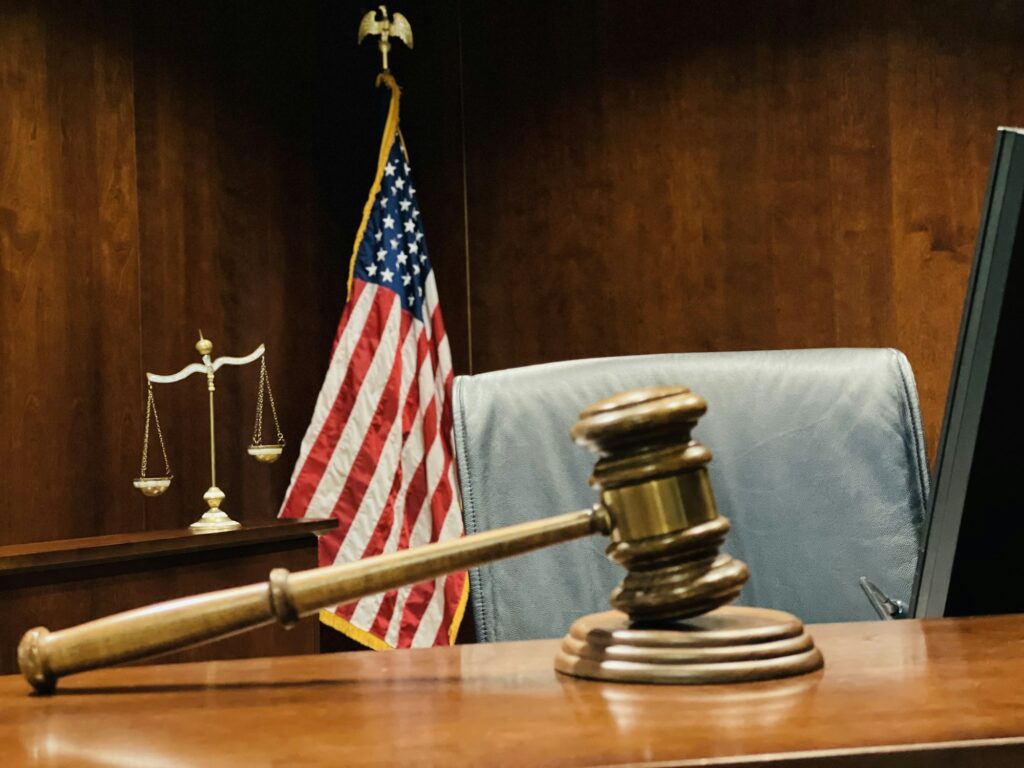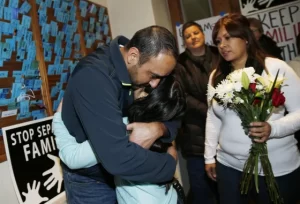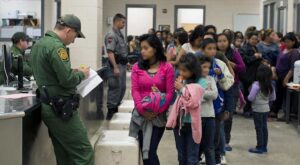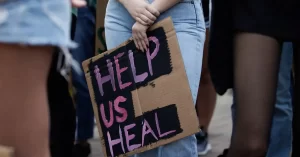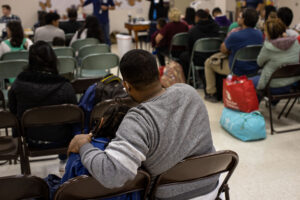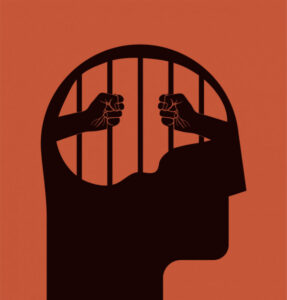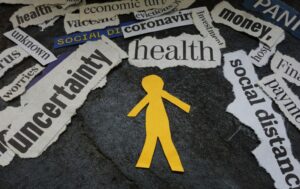A report from IAALS and HiiL highlights the breadth and scope of the American access to justice issue, including racial, ethnic, and socio-economic disadvantages, allowing for targeted civil justice reform in a research-driven way, during a time in our history when it is most critically needed.
IAALS, the Institute for the Advancement of the American Legal System, and the Netherlands-based HiiL (The Hague Institute for Innovation of Law) completed the first nationwide survey of its size to measure how Americans across a broad range of socio-demographic groups experience and resolve their legal problems. The US Justice Needs survey, funded by Bohemian Foundation, reached 10,000 Americans, asking them about the legal problems they experienced in the last four years, what they did to solve those problems, and ultimately whether they felt they managed to reach a fair resolution. The full report with the survey results will be released on September 1, with two live webinars presenting the data, reporting on the outcomes, and suggesting solutions.

“The findings of this survey,” says Dr. Martin Gramatikov, Measuring Justice Director at HiiL, “indicate what our research has historically shown—that oftentimes the more developed a nation is, the more justice needs exist in the population, and the greater the challenge of access to justice for all. While it is widely understood that there is an access to justice problem in the United States, the full extent of the justice crisis has been less clear, until now. With the results of this survey, and IAALS’ focus on evidence-based reform, we can begin to truly understand the scope of the problem, and work towards the changes needed to address this justice gap.”
The results of the survey provide a clear picture regarding the landscape of legal problems in the United States. Access to justice is a broad societal problem—66% of the population experienced at least one legal issue in the past four years, with just 49% of those problems having been completely resolved. There is no income group, gender, race or ethnic group, age group, or geographic area that does not face a substantial number of legal problems. On an annual basis, that translates to 55 million Americans who experience 260 million legal problems. A considerable proportion of these problems—120 million—are not resolved or are concluded in a manner which is perceived as unfair. This study shows that access to justice challenges are significant and pervasive.
“This is a crisis that demands increased advocacy and funding for policies and services that increase access to justice across broad segments of society,” says Brittany Kauffman, Senior Director at IAALS. “Previous research has been heavily focused on those with low income, or has been limited in geographical scope. While this study confirms that those with low income are a particularly vulnerable population, it also reflects that the access to justice crisis is not limited to this group. We surveyed people across all regions of the United States, including urban and rural areas. Understanding the breadth and reach of the problem helps us create evidence-based solutions and sound the alarm that we need to take urgent action.”
The data reveals what kinds of justice problems people face in the United States and how—and to what extent—those problems vary across socio-demographic characteristics. It provides insights into the most serious problems, as well as the extent to which those problems are resolved. The report also focuses on two problem types in particular—1) work and unemployment and 2) money-related problems—both of which are particularly serious and impactful for Americans.
“Money-related, work, and unemployment problems disproportionately impact vulnerable groups in society,” says Logan Cornett, Director of Research at IAALS, “and we anticipate these problems will become even more common and impactful as a result of the COVID-19 pandemic. The data also highlights the critical issues of inequity in the United States justice system. While access to justice is a broad societal problem, the effects of the justice crisis are not equally distributed. Looking at the justice crisis through the lens of different socio-demographic groups reflects different constellations of problems, different experiences, and different outcomes.”
The report examines the rates at which people encounter legal problems, the relative seriousness of those problems, and the rates at which they were able to completely resolve their legal problems. The following groups stand out as most vulnerable: lower income, women, multiracial and Black Americans, younger and middle-aged, and those living in urban and rural environments.
“The nature, seriousness, and resolution rates of the legal problems Americans experience are affected by their income, gender, race and ethnicity, age, and living environment,” says Jim Sandman, President Emeritus of Legal Services Corporation and member of the US Justice Needs Advisory Committee. “The result is that some socio-demographic groups are particularly disadvantaged in getting access to justice. We hope the data provides a greater understanding of this inequity to guide reform efforts and ensure that the needs of all are met in a fair and equitable way.”
The findings and implications outlined in the report are based on the need to improve access to justice, and access to fair resolutions in particular, for Americans—and are intended to support policymakers and providers of justice services in their efforts to increase the number of legal problems that are prevented or resolved in a fair and effective way.
“The justice sector lags behind others—for example education, the economy, health—in both availability and use of data. Policy makers and service providers must currently make decisions about how to spend scarce resources guided only by very limited information about how individuals need, perceive, and access justice,” says Rebecca Sandefur, Professor in the School of Social and Family Dynamics at Arizona State University and US Justice Needs Advisory Committee member. “Data are essential for assessing what works. Longitudinal data, in particular, are critical for understanding the impact of justice delivery models and interventions. Without data, justice cannot work for people. The US Justice Needs report is a critical piece in closing the U.S. justice resolution gap.”
IAALS and Hiil will release the co-published final report on September 1, 2021. A webinar on the release day will be followed by a second webinar on September 15, 2021. Both are live, free, and open to the public. See details and registration information below. Online interactive dashboards that will allow greater transparency and a deeper dive into the data will be available at a later date.
The US Justice Needs Study: 10,000 Voices, Wednesday, September 1, 9 a.m. MDT: In this launch-day webinar, IAALS and HiiL will share the report, present key data points, and speak to the implications of this research—for those in the justice system, policymakers, and beyond.
The US Justice Needs Study: Policy Implications for Access to Justice, Wednesday, September 15, 11 a.m. MDT: Following the launch of the US Justice Needs report on justice needs and satisfaction in the United States, this webinar will bring together experts from across key justice institutions and perspectives to speak to the outcomes of the report and crucial policy implications for access to justice in the United States.
About HiiL
The Hague Institute for Innovation of Law (HiiL) is an international social enterprise committed to user-friendly justice. Our global mission is to ensure by 2030 that 150 million people can prevent or resolve their most pressing justice problems. To achieve this, we gather data and use evidence-based practices that promote ‘what works’ and help stimulate and scale-up game-changing justice innovations worldwide.
About IAALS
IAALS, the Institute for the Advancement of the American Legal System at the University of Denver, is a national, independent research center dedicated to facilitating continuous improvement and advancing excellence in the American legal system. Our mission is to forge innovative and practical solutions to problems within the American legal system.
credit:: HiiL user Friendly Justice


